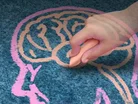Bonding Hormone Oxytocin Hints at Why Autistic Children Dislike Social Interaction

Written by Alyssa Clark
For years, scientists have struggled to determine why autistic kids gear more towards identifying with ideas and objects, rather than building friendships or interacting socially. However, recent studies have inculcated that maybe this reasoning is more than just a matter of preference, and that has led to the ideas for possible new treatments.
Published in the journal Nature, this study concerning social behavior of autistic kids was performed on mice, in hopes of mirroring the social behavior and finding a way to diagnose the behavioral commonality. There was an interesting connection found between the hormone oxytocin and brain systems ability to produce pleasure and motivation; for example, oxytocin levels are raging during things like orgasms, pregnancy and love stages (this is why this hormone is referred to as the “love” or “cuddle chemical”); however, this study found that some kinds of genetic variability between autistic children may challenge these notions.
Stanford University researched have describe how interfering with oxytocin’s activities can not only influence, but can inhibit social behavior. Serotonin partners with oxytocin to produce feelings of satisfaction and reward, in order to make social interaction worthwhile and comforting— or in terms for people dislike it, at least make social interaction bearable. This might be the disjunction occurring between the action of social interaction and getting enjoyment from it, which is thus limiting the ability for the autistic child to even want to try.
“People with autism-spectrum disorders may not experience the normal reward the rest of us all get from being with our friends,” the study’s lead author, Dr. Robert Malenka, professor of psychiatry and behavioral sciences at Stanford University said in a statement, “For them, social interactions can be downright painful.”
It was proven in the mice that could not activate their oxytocin levels and serotonin levels, that they did not act like their socially-adept selves.
“It’s great study and has some interesting implications,” says Dr. Eric Hollander, director of the Autism and Obsessive-Compulsive Spectrum Disorders clinic at Montefiore/Albert Einstein College of Medicine, who was not involved in the research. “I have seen synergistic effects and I think they go very well together,” he says, noting that they tend to work on different symptoms, “I use SSRI’s to target higher order [compulsive and repetitive] rituals, routines and anxiety and use oxytocin to help with social communication and reward.”
With the possible connection to serotonin now understood a little better, antidepressant drugs like Prozac are understood better in terms of why they can sometimes be helpful to autistic patients, allowing them to feel more empowered to connect and interact with people.
“Our results suggest that maybe combining oxytocin with a serotonin drug might be beneficial,” says Malenka. Clinical trials testing oxytocin as a treatment for autism are ongoing; one trial, which only lasted four days, failed to find an effect, but researchers believe that longer exposure is probably necessary.
About the Author
Alyssa Clark is the Editor of Healthcare Global



